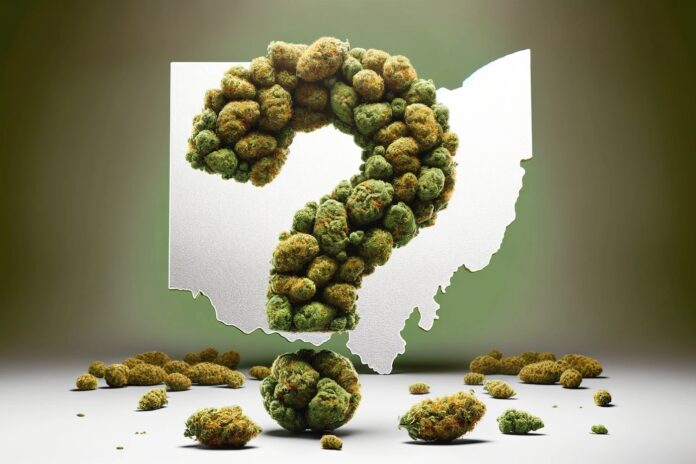The only certainty Ohio residents have concerning the status of adult-use cannabis is Issue 2’s passage at the ballot box last November. For the time being, the new statutory scheme for adult use remains unaltered by the state legislature, but this could change.
Issue 2 passed on November 7 and became effective December 7. Since the ballot measure was a legislative initiative resulting in the enactment of a new statute, it is subject to amendment or repeal by the Ohio legislature. Although there does not appear to be a groundswell of support within the legislature to repeal adult-use legalization, actions and comments by the governor and members of the legislature suggest amendments are imminent.
When the Ohio legislature began its winter hiatus in mid-December, competing bills had been proposed in the state Senate and House to modify various aspects of the statute enacted by Issue 2. However, the chambers were unable to close the gap on their competing measures. One common thread among the proposed amendments suggests amendments to the taxation framework. Issue 2 provides a 10-percent tax on retail sales; the money is earmarked for support of a social equity and jobs program, substance abuse and addiction efforts of the Department of Mental Health and Addiction Services, a newly created Department of Commerce Division of Cannabis Control, and municipalities and townships where adult-use dispensaries are located. Based on the commonality of the proposed amendments percolating, it seems likely the retail tax will be increased and portions of the tax also will be set aside for law enforcement measures.
Other proposed changes include:
• Reducing the number of plants that can be grown at home (currently capped at six per resident and twelve per residence).
• Changing the quantity of recreational cannabis an individual can possess.
• Imposing limits on the THC concentration in plant material and extracts.
• Removing limits on the ability of townships and municipalities to ban cannabis-related businesses or promulgate additional taxes.
• Automatic expungement of certain marijuana convictions.
• Imposing a ban on public use and consumption.
• Creating criminal offenses for transporting opened cannabis and paraphernalia packages, exceeding limitations on the quantity an individual legally may possess, and underage possession purchase, consumption, or use.
Negotiations on changes to adult-use laws are expected to recommence now that the legislature has reconvened.
As things presently stand, the Division of Cannabis Control is tasked with creating rules and regulations for implementing adult-use legislation, making license applications available and beginning to accept applications within six months, and starting to issue licenses within nine months from the effective date of the new statute. In addition to issuing adult-use dispensary and cultivation licenses to operators currently holding licenses for medical marijuana, the existing law requires the Division of Cannabis Control to issue forty additional adult-use cultivation licenses and fifty additional adult-use dispensary licenses. In issuing the additional licenses, preference will be given to participants in the cannabis social equity and jobs program. The Department of Development is tasked with establishing and adopting rules for this program, which is meant to provide financial assistance and support for cannabis-related business license applications by individuals certified to be directly and adversely impacted by the enforcement of marijuana-related laws.
The nine-month timeframe imposed for the issuance of licenses seems aggressive. The Division of Cannabis Control has established an FAQ page for “Non-Medical Cannabis” on its website with basic information about the status of implementing Issue 2. At this point, however, no proposed rules have been published by the Division of Cannabis Control pertaining to adult use. As of the date this column was written, the cannabis social equity and jobs program had not been created, and a search of the Ohio Department of Development website does not bear a single result for the terms “cannabis” or “social equity and jobs.” Anecdotally, the law authorizing medical marijuana in Ohio passed in mid-2016, and the first sales of medical marijuana in the state did not occur until almost two and a half years later.
While individuals in Ohio wait for the legislature and state agencies to act, they now can legally grow and possess cannabis for recreational use. However, they cannot legally purchase or sell it, as sales of non-medical cannabis may not begin until licenses are issued and facilities are certified. Any sale of cannabis prior to the issuance of adult-use licenses may incur criminal penalties. Considering the specter that the existing legislation will be modified, coupled with the state’s slow implementation of its medical marijuana programs, it is uncertain when individuals will be able to purchase recreational cannabis legally in the state of Ohio.

Scott Johnson, Esq., is a member of the law firm Eastman & Smith in Toledo, Ohio. He represents clients in industries including cannabis and hemp, real estate development and investment, brokerage, finance, and construction.











